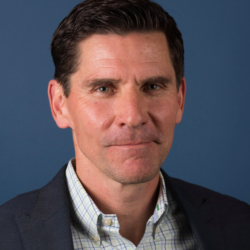The California Union Exodus
Anybody with eyeballs is pretty thrilled to read the news out of California: one of the state’s most powerful government unions is getting out of politics.
Richard Brown, incoming president of the Service Employees International Union (SEIU), won election last week on a promise to end the union’s political spending, to cut member dues, and to allow non-members to vote.
But there are bigger stories surrounding Brown’s bold declaration.
SEIU’s withdrawal from politics takes place against a backdrop of declining enthusiasm for all of California’s government unions. Three years ago this month, the Supreme Court banned as unconstitutional California’s requirement that government workers join unions as a condition of employment. Police, teachers, firefighters, DMV workers and others who at every level of government were suddenly liberated.
There was just one problem: Even today, many government workers do not know their rights. That’s because, in the years leading up to the Supreme Court’s 2018 decision, California lawmakers backed by government unions built a fortress of new laws designed to limit government workers’ rights. That’s why my own California Policy Center has taken on the job of educating those workers – helping them understand their rights and the rewards of leaving their unions.
Today, California’s government unions have lost at least total of 306,000 members. That represents a decline of some $225 million in dues revenue. That revenue decline is driving unions like SEIU to reconsider their priorities. Brown’s plan to refocus on member services – and away from formal political spending – is the likeliest outcome for most other government unions.
But let’s be clear: SEIU isn’t ending political spending out of affection for democracy and individual liberty or the rights of their workers. They’re doing this to head off total financial collapse brought about by three years of declining membership. Indeed, California Policy Center has become so effective at notifying SEIU members of their constitutional right to opt-out of their union that SEIU launched a counter program – expensive marketing campaigns warning members to “PROTECT YOURSELF AND YOUR CO-WORKERS from the California Policy Center and Other Anti-Union Groups.”
The good news for California: as unions abandon their practice of political spending, ordinary Californians of all political persuasions will have an easier path to reform the state’s failed policies. They won’t invariably be confronted by massive union campaigns. They’ll reform a public education system that badly serves our students, they’ll begin to solve the homelessness, wildfires, and water shortages that plague our state. They’ll begin to unwind the Crazytown mashup of business regulations choking into submission one of the world’s largest economies. They’ll begin to reduce the cost of living so that our children and grandchildren can aspire to leave as our parents did.
One day, it’s possible to imagine, we’ll enjoy a political landscape in which union leaders don’t have hundreds of millions of dollars to run the campaigns of candidates who, once in office, rubber-stamp the unions’ agenda.
It’s important to read Brown’s assertions more closely than some enthusiasts have. In declaring that he will end SEIU’s political gamesmanship, Brown clearly has politics in mind. In the short term, Brown has said, depriving Democrats of millions of campaign dollars is intended to punish Gov. Gavin Newsom who furloughed some state workers during the pandemic. That’s a political. He also wants to eliminate no-strike provisions in union contracts – and when government unions strike for more money, shorter hours, or more union control of the workplace, that’s absolutely political.
For that reason, our work is far from over. While we’re delighted with Brown’s statements, we understand them as a warning: this isn’t SEIU’s surrender. It’s a strategic retreat by a still-powerful union in desperate need of reorganization. Our job of eliminating all government-imposed barriers to liberty and prosperity – including reform of the government unions that exercise nearly total control over the Golden State – that job continues.
***
Will Swaim is cohost of National Review’s Radio Free California podcast, and president of the California Policy Center, an educational nonprofit working to reduce public sector barriers to freedom.

